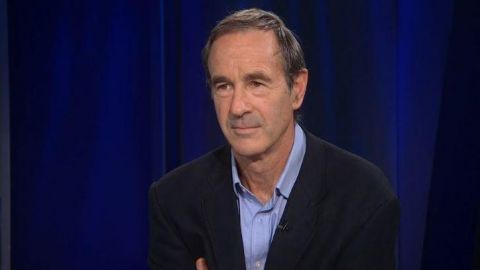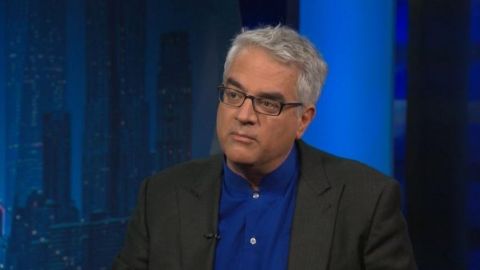Read Transcript EXPAND
CHRISTIANE AMANPOUR: So, I want to go back to the beginning. Because not many people know that you were born in Iran, that your parents left the United States of the ’50s, I guess.
VALERIE JARRETT, FORMER SENIOR ADVISOR TO PRESIDENT BARACK OBAMA: Exactly.
AMANPOUR: And why? Tell me why they did it? What was your father doing? What was your mother doing?
JARRETT: My father was a physician and he was just leaving the army and wanted to teach at an academic teaching hospital in the United States. And he couldn’t find a job comparable to what his White counter parts were receiving. And so, he and my mom, who were adventurous spirits decided to look for opportunities outside the United States. And he landed a job where he was asked to chair the Department of Pathology and help start a brand-new hospital in Shirazi, Iran an (INAUDIBLE) hospital. And I was the second baby born in that hospital.
AMANPOUR: But it’s huge the distance they traveled and the idea of going to Iran in the early to mid ’50s, it wasn’t obvious, I mean, racism, Jim Crow.
JARRETT: Well, my parents grew up under Jim Crow and my mother in Chicago, my dad in D.C. So, they were used to it. My father went to Howard undergrad, Howard Medical School. My mother had a different education, she went to Sarah Lawrence and boarding school before that, but they both kind of hit this wall. And so, it’s interesting, because from Iran, my father worked there for five years then he was recruited to come here to the United Kingdom where he worked at the Galton Laboratories. And there, he did deliver a paper at some international conference in the (INAUDIBLE) Chicago, medical center heard him deliver the paper. So, six years later, he was officered a tenured position, tenure track position at the University of Chicago. And so, he used to always say to me that sometimes the shortest distance to where you really want to go means you have to be prepared to take the long way around.
AMANPOUR: I mean, it really is extraordinary. So, did you speak Persian?
JARRETT: Absolutely.
AMANPOUR: I know you were — did you?
JARRETT: I spoke French, I spoke English [13:20:00]. We lived on a hospital compound with physician’s families from all over the world. And it was such a wonderful way to grow up. And, of course, you know this, but the United States had very strong diplomatic relationships back then with the Shah. And so, in that sense, it wasn’t so unusual. But it was on the other side of the world and it was a big leap of faith but my father went from being a Black doctor to being an American doctor where he was judged on his merit and that’s why I spent my first five years, which was very formative and a lot of profound ways.
AMANPOUR: I’m going to talk to you a little bit about the politics in a moment because, yet again, there’s a big spike in real problems between Iran and the United States. But first, when you went back, finally, to the United States, I mean, presumably you had not encountered racism in Iran. I don’t know, did you encounter it here in England?
JARRETT: No. I don’t remember at all. But I do remember going to Chicago and I was bullied by everybody. I was bullied and for a whole range of reasons. I was from a country born in a country no one had heard of. I was light skinned with freckles and red hair. I was two years ahead of myself in school. I was five years old in second grade. And I just was different. And it was hard for me and my parents, it was going back home and for me, it was like going to a foreign country.
About This Episode EXPAND
Christiane Amanpour speaks with Fraser Nelson and Martin Fletcher about the leadership race in the British Conservative party. Valerie Jarrett joins the program to discuss her new book, “Finding My Voice: My Journey to the West Wing.” Michel Martin speaks with Nicholas Christakis, author of “Blueprint,” who argues the historical arc of human behaviour bends towards goodness.
LEARN MORE


